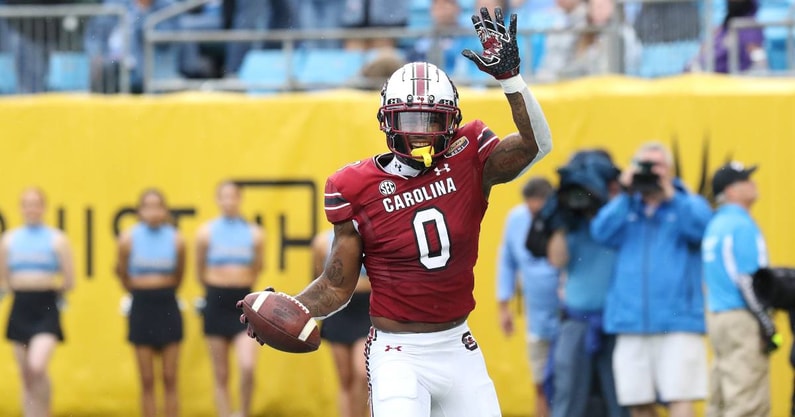How the South Carolina Gamecocks Are Leading the Charge in the New Era of NIL Opportunities
The landscape of college athletics has undergone a seismic shift with the introduction of Name, Image, and Likeness (NIL) policies, and the South Carolina Gamecocks are at the forefront of this revolution. As one of the most prominent athletic programs in the NCAA, the Gamecocks have not only adapted to these changes but have fully embraced them, leveraging new opportunities to benefit their student-athletes, enhance recruitment, and strengthen their brand. The NIL era represents more than just financial gains for players—it’s a fundamental transformation in how college sports operate, and South Carolina is setting the standard for success.
For decades, the NCAA maintained strict rules prohibiting athletes from profiting off their own names, images, or likenesses. While universities and organizations reaped millions in revenue from ticket sales, merchandise, and broadcasting rights, the players themselves were barred from earning a single dollar from their fame. This long-standing model faced increasing scrutiny, with critics arguing that it was exploitative and out of touch with modern realities. The turning point came in 2021 when the Supreme Court ruled in *NCAA v. Alston*, effectively dismantling the NCAA’s restrictions on athlete compensation.
Almost overnight, college athletes gained the right to sign endorsement deals, monetize their social media presence, and participate in sponsorship agreements. For programs like South Carolina, this meant navigating uncharted territory—balancing compliance, fairness, and competitive advantage in a rapidly evolving system.
The University of South Carolina didn’t just react to NIL changes—it proactively built a framework to ensure its athletes could thrive. Under the leadership of Athletic Director Ray Tanner and head coaches like Shane Beamer (football) and Dawn Staley (women’s basketball), the Gamecocks have established one of the most robust NIL infrastructures in the nation.
This initiative ensures that Gamecock athletes don’t just sign deals—they make informed, sustainable decisions that set them up for long-term success.
One of the most significant developments in the NIL space has been the rise of collectives—third-party organizations that pool funds from boosters and businesses to facilitate deals for athletes. The Garnet Trust, South Carolina’s primary NIL collective, has been instrumental in connecting athletes with local and national brands.
From football stars like Spencer Rattler to basketball phenoms like Aliyah Boston (before her WNBA career), Gamecock athletes have secured lucrative partnerships with companies ranging from local car dealerships to national apparel brands.
These deals not only provide financial benefits but also strengthen ties between the team and the community.In the hyper-competitive world of college sports, NIL opportunities have become a major factor in recruiting. South Carolina’s proactive approach has given them an edge, especially in football and women’s basketball—two programs that have seen unprecedented success in recent years.
Coaches now highlight the university’s NIL resources when pitching to recruits, showcasing real-world examples of current players benefiting from sponsorships. This strategy has helped attract top-tier talent, reinforcing the Gamecocks’ position as a powerhouse in the SEC.
These examples highlight how NIL isn’t just for the biggest names—players across multiple sports and varying levels of fame are finding ways to benefit.
While NIL has opened doors, it also presents challenges. The lack of uniform regulations across states has led to concerns about competitive balance, with some schools operating in more lenient environments than others. Additionally, there are ongoing debates about how NIL intersects with potential revenue-sharing models between athletes and universities.
South Carolina’s approach has been to stay ahead of the curve, advocating for sensible regulations while maximizing opportunities for its athletes. As the NCAA and Congress continue to debate broader reforms, the Gamecocks are positioned to adapt swiftly, ensuring their players remain at the cutting edge of this new era.
The South Carolina Gamecocks aren’t just surviving the NIL revolution—they’re thriving in it. By investing in education, fostering strong partnerships, and leveraging their brand power, they’ve created an environment where athletes can succeed both on and off the field. As NIL policies continue to evolve, one thing is clear: the Gamecocks will remain a leader in shaping the future of college sports.
For fans, this means watching a program that not only competes for championships but also pioneers progress. For recruits, it means joining a university that prioritizes their financial and professional growth. And for the athletes themselves, it means unprecedented opportunities to profit from their hard work—a change that’s long overdue.
The NIL era is here, and the South Carolina Gamecocks are leading the charge.



